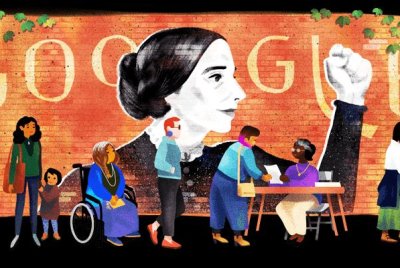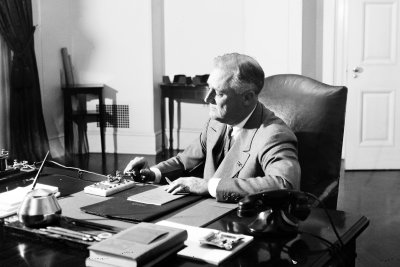Topic: Elizabeth Cady Stanton
Quotes
We hold these truths to be self-evident: that all men and women are created equal
The almanac Nov 12, 2009
We hold these truths to be self-evident: that all men and women are created equal
The almanac Nov 12, 2008
The Bible and the Church have been the greatest stumbling blocks in the way of women's emancipation
The almanac Sep 18, 2008
The Bible and the Church have been the greatest stumbling blocks in the way of women's emancipation
The almanac Sep 18, 2007
We hold these truths to be self-evident: that all men and women are created equal
The Almanac Nov 12, 2006
Elizabeth Cady Stanton (November 12, 1815 – October 26, 1902) was an American social activist, abolitionist, and leading figure of the early woman's movement. Her Declaration of Sentiments, presented at the first women's rights convention held in 1848 in Seneca Falls, New York, is often credited with initiating the first organized woman's rights and woman's suffrage movements in the United States.
Before Stanton narrowed her political focus almost exclusively to women's rights, she had been an active abolitionist together with her husband, Henry Brewster Stanton and cousin, Gerrit Smith. Unlike many of those involved in the woman's rights movement, Stanton addressed a number of issues pertaining to women beyond voting rights. Her concerns included women's parental and custody rights, property rights, employment and income rights, divorce laws, the economic health of the family, and birth control. She was also an outspoken supporter of the 19th-century temperance movement.
After the American Civil War, Stanton's commitment to female suffrage caused a schism in the woman's rights movement when she, together with Susan B. Anthony, declined to support passage of the Fourteenth and Fifteenth Amendments to the United States Constitution. She opposed giving added legal protection and voting rights to African American men while continuing to deny women, black and white, the same rights. Her position on this issue, together with her thoughts on organized Christianity and women's issues beyond voting rights, led to the formation of two separate women's rights organizations that were finally rejoined, with Stanton as president of the joint organization, approximately 20 years later.
It uses material from the Wikipedia article "Elizabeth Cady Stanton."













